If you need more resources or steps on relieving anxiety, check out 10 steps on how to relieve anxiety on BetterHelp.
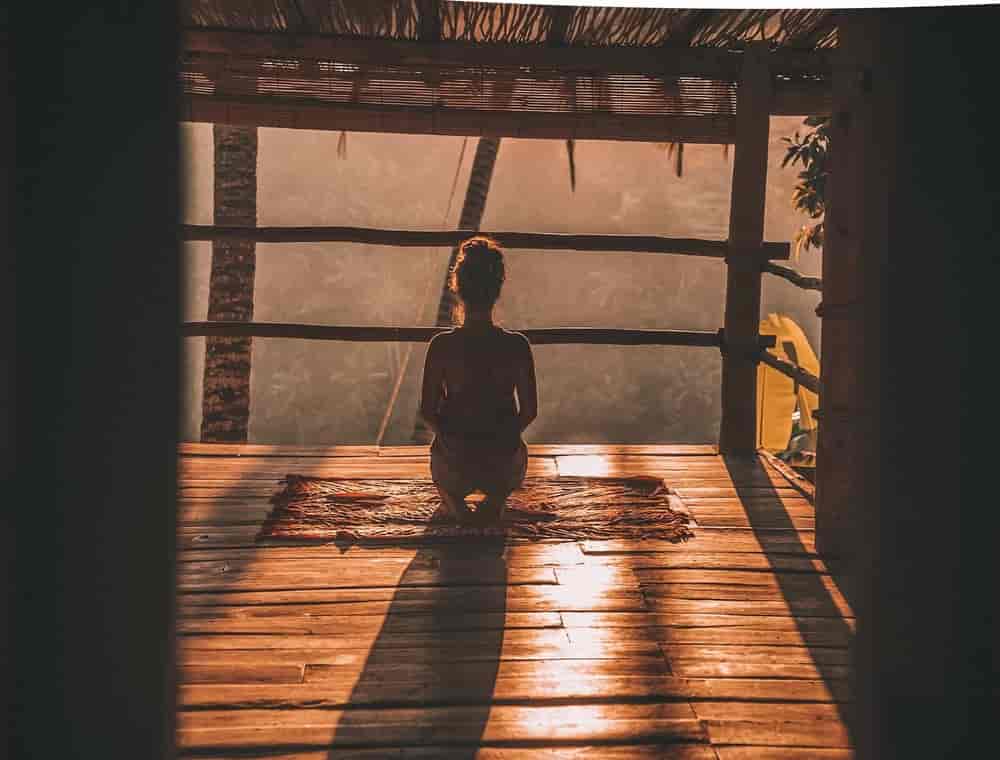
10. Education
The final and probably most important natural remedy for anxiety is education.
I know it sounds obvious but the more you know about anxiety, the more likely you are to relieve it.
Did you know that anxiety can be relieved naturally?
You must have thought this was possible since you’re on this page, but I’m here to tell you that science has proven that this really is possible. I’m not talking about “aligning your chakras” or “taking a relaxing bath”.
I’m talking about real, solid, scientifically proven methods that can relieve your anxiety without medication. If you already take medication for anxiety, these methods can be an addition to your medication. Below are ten scientifically proven natural remedies for anxiety.
Why use natural remedies for anxiety?
Before we get into it, I just wanted to touch on why incorporating these methods into your life is so important.
Approximately 40 million people suffer from anxiety in the U.S. alone. Out of those 40 million people, only 1/3 of them will seek treatment. This is because most people don’t want to go to the doctor or a therapist.
They don’t think their anxiety is “that bad.”
Doctors and therapists are a hassle. They take up a lot of time and money.
Many professionals go straight to prescribing medication, and a lot of people are uncomfortable with the idea of taking medication for the rest of their lives.
If this sounds like you then I have good news. You can be proactive, take your fate into your own hands and learn how to treat anxiety naturally.
10 natural remedies for anxiety
1. Mindfulness and Meditation
Mindfulness and mediation get kind of a bad rap sometimes. There is SO much talk of it out there that people often forget that this really is a proven way to treat anxiety.
Before I learned more about it, if I heard someone talk about mindfulness or meditation, I often rolled my eyes into the back of my head.
Its kind of like someone talking about how they are vegan. It’s like “yeah I know it’s probably good for me but ugghhh….”
Judgments aside…
Science, what do you have to say about it?
“Initial studies into the effectiveness of Mindfulness Based Stress Reduction (MBSR) for reducing stress and its harmful effects are promising.” Carlson and Garland, (2005), Speca, Patel, and Goodey, (2003).
“Researchers at the University of Calgary investigated the effects of an 8-week MBSR program on the quality of life stress, mood and… significant improvements were found in quality of life and sleep quality, and stress symptoms were reduced…”
“There is also some evidence that the effects of MBSR may be long-lasting. A one year follow-up of the same patients found that the initial Improvement in stress symptoms and mood were maintained…” Taylor, S.E., & Sirois, F.M. (2012). Health Psychology 206.
That is just one excerpt from a book that I was able to find pretty easily. There are countless other studies and research that prove meditation is an extremely effective cure for anxiety and depression. The truth is, the science backs up meditation all the time because it works.
The above excerpt says that not only is it an effective treatment, it is also long-lasting which is exactly what we want when treating anxiety.
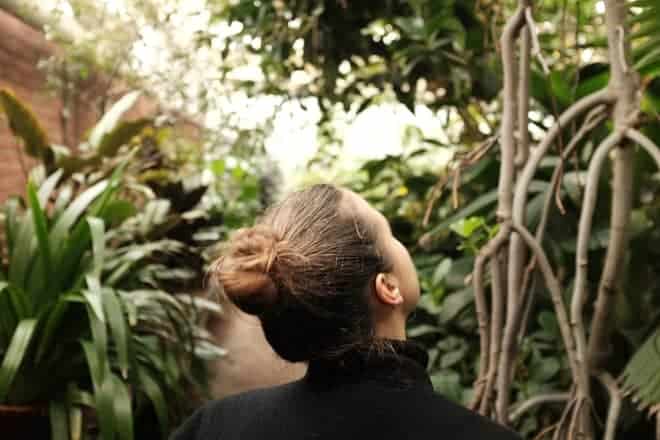
2. Cognitive Behavioral Therapy (CBT)
Don’t click away! I know, I’m sorry. When you were looking for natural remedies for anxiety, you were hoping that I would have some kind of lemon and chamomile tea recipe and you could call it a day.
Oh how I wish I could offer that to you.
Oh how I wish I could offer that to myself.
The thing with anxiety is that it is in our DNA.
Our caveman ancestors used anxiety to protect themselves against lions and tigers. They had to stay on their toes and the person that was on edge and looking out for danger was the one that survived.
I really hate to be the one that has to say this but… you’re not getting rid of that biologically instilled survival instinct by making some tea…
Which brings me to CBT. I know it can be a little offputting because it sounds like a lot of psychological mumbo jumbo and that’s because… it is!
CBT can take years to learn but the basics are NOT that difficult and it will give you actionable tasks that you can use to relieve your anxiety.
But where’s the proof?
“CBT is constantly evolving by what is called “empirical evidence” or “evidence-based-practice”. You can learn more about CBT and empirical evidence by checking out the study summary.
Empirical evidence is evidence that can be observed and studied.
This means that the methods taught in CBT have been developed and modified as a result of clinical studies over many years.
They try a certain method, do a clinical study and then see if it actually worked. Years and years of this research has been done and we get to reap the benefits of all that trial and error.
This means that CBT has been through more in depth clinical studies than most medications!
All of these really smart professionals: Stefan G. Hofmann, Ph.D., Anu Asnaani, M.A., Imke J.J. Vonk, M.A., Alice T. Sawyer, M.A., and Angela Fang, M.A….
Got together and published a scientific study called “The Efficacy of CBT: A Review of Meta-Analyses.”
I will spare you the details as the research is very long but here’s what they had to say about CBT treatment for anxiety:
“Anxiety Disorders: In general, CBT is a reliable first-line approach for treatment of this class of disorders (Hofmann & Smits, 2008), with support for significant positive effects of CBT on secondary symptoms such as sleep dysfunction and anxiety sensitivity…(Ghahramanlou, 2003)
…Further, internet-delivered or guided self-help CBT showed some promise in immediate symptom relief as compared to no treatment…” (Öst, 2008; Coull & Morris, 2011).
See what it said! It said that even getting basic lessons of CBT via the internet will help relieve your immediate symptoms.
Seriously guys, this stuff works!
3. Eating/Avoiding Certain Foods
Here is where I am going to say you should drink chamomile tea.. but not exactly.
See there are studies that show certain foods have an effect on our mood and anxiety levels. A scientific study showed the following:
“Anxiety is linked to the prevalence of disease [1]. People with mood disorders often have poor quality diets which are low in fruits and vegetables but high in fat and sugar.” – Michelle Murphy* and Julian G. Mercer , NCBI
Because the diet is such a difficult thing to track scientifically, I would never rely solely on changing your diet but it can definitely help your anxiety if you’re doing this in combination with other, more proven treatments.
A general rule of thumb for overall physical and mental health is to eat a variety of fruits and vegetables and to make sure you’re eating healthy and balanced meals.
Some foods to avoid: processed foods, foods high in sugar, caffeine, fried foods.
4. Relaxation Therapy
The CBT study I referenced above also talked about relaxation therapy. Although CBT was an effective method of treating anxiety, it actually scored equally when compared to relaxation therapy.
Relaxation therapy is an umbrella term to describe many therapeutic practices that can help increase relaxation. This could be massage therapy, music therapy, mindfulness, breathing techniques etc.
You can incorporate relaxation therapy easily and in your own home.
Related Posts:
- 18 Self Care Products that Will Calm Your Chaos
- How To Fight Anxiety: 7 Ways to Stop Worrying All The Time
- The Self Care Morning Routine that Changed My Life
- Self Care is Not Selfish: How Putting Yourself First Helps Others
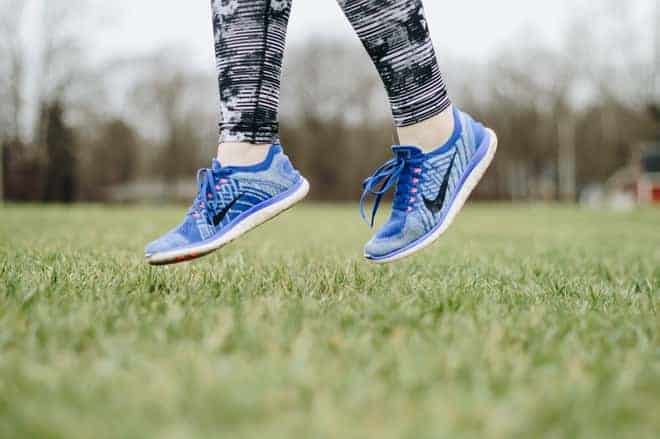
5. Exercise
Exercise is a great way to help reduce anxiety. I have a personal theory that anxiety disorders have become so widespread in modern times because we are much less active.
Even if we look back fifty years ago, kids rode their bikes to school, played outside and people walked to the grocery store or the post office.
Our lives have become very convenient and the price we pay is that we sit all day in front of computer screens. This is wreaking havoc on our mental health.
A study published by the US National Library of Medicine National Institutes of Health had this to say about exercise and anxiety:
“Exercise may represent a promising, affordable, and easily accessible treatment option for individuals with anxiety.
Exercise is distinguished from other forms of physical activity in that it is a planned, structured, repetitive endeavor with the goal of improving physical fitness (33). A number of observational studies document an inverse association of exercise and symptoms of anxiety.
For example, in one study of 8098 adults (34), individuals exercising “regularly” had a reduced risk of being diagnosed with an anxiety disorder compared to their sedentary counterparts” (odds ratios [OR] from 0.64 to 0.78 for exercisers) – Exercise as Treatment for Anxiety: Systematic Review and Analysis, Gregory L. Stonerock, PhD, Benson M. Hoffman, PhD, Patrick J. Smith, PhD, and James A. Blumenthal, PhD
6. Social Support
Three decades of research suggests that people with close friends are better able to survive life’s challenges including traumatic events, chronic illness, mental illness etc.
Carlin Flora, author of “Friendfluence” has often called friendship an evolutionary advantage.
When people lose close connections in their lives, they start to question the meaning of life and why they are bothering with hardship in the first place. Humans have evolved to be social creatures and we literally need others to help keep us alive and give us the will to live.
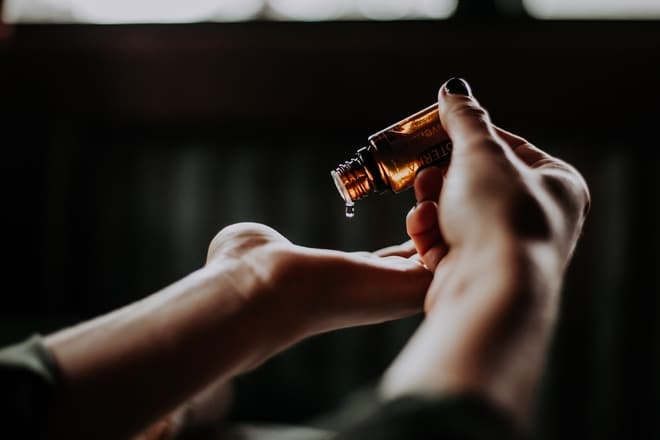
7. Aromatherapy
I know that aromatherapy and essential oils can often sound a little “woo woo”. Any claim saying that essential oils or herbs is going to cure your physical ailments, should be taken with a grain of salt but aromatherapy has been proven to impact a person’s mood.
Studies have shown that people who are going through clinical treatments or suffering from serious medical conditions will often relax and show less signs of anxiety if given an aromatherapy session before treatment.
Scientists tested this on hemodialysis patients, people suffering from a kidney disorder. They made them inhale some rosewater before going through treatments and then measured their anxiety levels. The results were as follows:
“According to the present study, rose water noticeably reduces the anxiety of hemodialysis patients. Therefore, inhalation of rose water can improve the patient’s emotional and spiritual condition during hemodialysis treatment.”
Aromatherapy is one of the most cost effective and easiest ways to reduce anxiety. You can easily incorporate aromatherapy into your daily routine by using a diffuser and some basic essential oils.
8. Self Care
Self care is kind of an all encompassing umbrella term for ways that you can reduce anxiety. It includes many (if not all?) the other things on this list but I wanted to single it out for a very special reason.
Self care is not about doing Yoga or taking a relaxing bath. It is a mindset.
It means that you have taken time out of your day to prioritize your mental health.
We often prioritize sleeping, exercising, our children, our jobs, but when do we set time aside for our mental health? Unless you are going to therapy, your mind never gets a chance to relax, recharge and heal.
This is why self care activities are so important.
Self care can include relaxing baths or meditation, but I like to look at self care as a way to prioritize the calmness of the mind. So this can include things like time management, how to stay motivated, how to delegate tasks etc.
If you need help getting started on your self care journey, check out my FREE 10 Day self care challenge here.
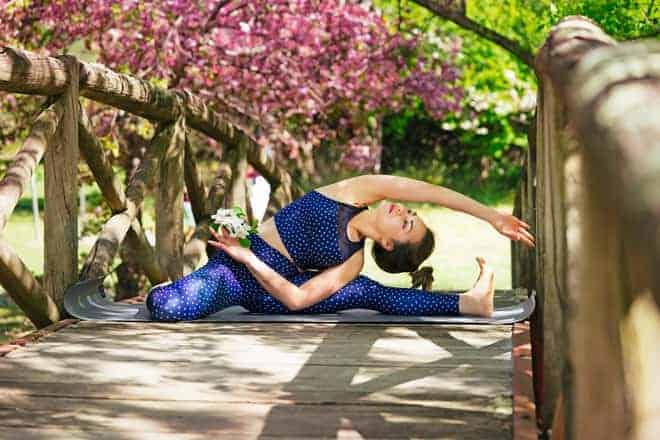
9. Yoga
There is so much scientific evidence backing up Yoga as a cure for anxiety!
Yoga is more effective than regular exercise for curing anxiety. It also incorporates so many of the other helpful things on this list.
Yoga gets your body moving.
You can incorporate meditation into your practice
You can use aromatherapy while practicing yoga.
Yoga is a form of relaxation therapy and can be done with others.
Science, what say you?
“Mindfulness training Incorporated several tools including relaxation, body scanning, yoga, and meditation. The primary goal of Mindfulness Based Stress Reduction is to approach situations mindfully rather than react to them automatically.” – Bishop S. R. (2002). What do we really know about mindfulness-based stress? Psychosomatic Medicine, 64, 71-84 (excerpt taken from Taylor, S.E., & Sirois, F.M. (2012). Health Psychology 206.)
As mentioned above, mindfulness training has been scientifically proven to reduce anxiety and yoga is considered a mindfulness-based stress reduction technique.
“Similarly our recent review comparing the effects of yoga, a common mindfulness-based practice, to exercise found that it was equal if not Superior to exercise across a variety of health outcomes.” –Ross. A., & Thomas, S., (2010). The health benefits of yoga and exercise: a review of comparison studies. The Journal of alternative and complementary medicine, 16, 3-12
This is the same for any mental or physical illness.
Not many people pay attention to their insulin levels or know anything about measuring glucose levels. But as soon as you’ve been diagnosed with diabetes, you’ll learn about that stuff really fast. Your life depends on it.
The reason this doesn’t happen with anxiety is because it isn’t life threatening. Therefore no one bothers to learn about it or try to discover solutions for it. Even though we have effective ways to treat it!
People who have personalities that create more stress and anxiety are the least likely to partake in treatments such as yoga and meditation.
“Engaging in activities such as meditation and yoga may be especially important for individuals with behavioral styles that create more stress. Unfortunately these are the very individuals who are less likely to get involved in mindfulness activities on their own. For example one study found that students who chronically procrastinated were also less likely to engage in a variety of mindfulness-based practices.” Taylor, S.E., & Sirois, F.M. (2012). Health Psychology 206.
The more you know about anxiety relief techniques, the easier it will be to start implementing them into your life.
Related Posts:
- 18 Self Care Products that Will Calm Your Chaos
- How To Fight Anxiety: 7 Ways to Stop Worrying All The Time
- The Self Care Morning Routine that Changed My Life
- Self Care is Not Selfish: How Putting Yourself First Helps Others
- Tips For Long Distance Relationships - February 10, 2023
- Wanna Know What Turns On Guys? Here’s Your Answer! - September 9, 2022
- How To Cut Communication With Your Ex – For Good! - September 9, 2022


Self care could also include taking yourself out of situations and talks that adds no value to your life.
Hi Pat,
That is very true! Filtering out negativity is definitely a part of self care, thanks for pointing that out.